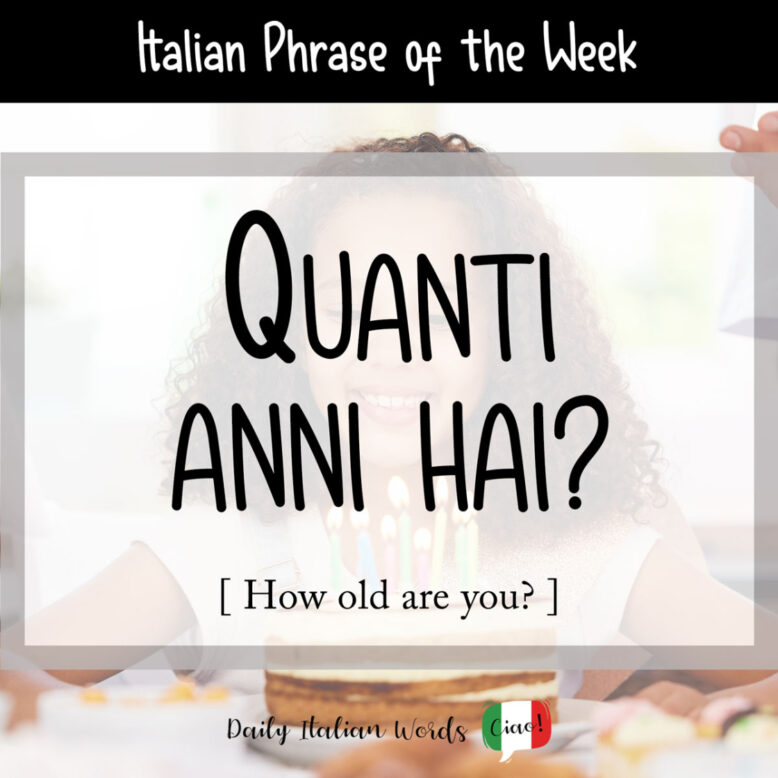A question that is rarely asked in real-world conversations, but almost always taught during the first lessons of any language course, is How old are you? or Quanti anni hai? in Italian.
Quanti anni hai? – Ho tre anni e mezzo!
How old are you? – I’m three and a half!

It is important to point out that Quanti anni hai? is the informal way of asking someone’s age in Italian. It is the version that is used most frequently, normally between young people and children. As in English, it isn’t considered impolite for young people to pose this question to one another, or for an adult to ask a child their age.
E tu quanti anni hai, Sara? – Ho quasi tredici anni.
And how old are you, Sara? – I’m almost thirteen.
Older people, on the other hand, rarely pose this question to people of the same age or older unless the information is absolutely necessary – say, to fill out an official form for example. Likewise, a young person would never inquire about the age of their superiors. This is why the formal version Quanti anni ha? is heard much less.
Quanti anni ha, signora? Devo chiederglielo in modo da poter compilare il modulo…
How old are you, madam? I have to ask so that I can fill out the form…
The plural form of this question is Quanti anni avete? It is only used when addressing a group of people.
Tip #1: The phrase quanti anni hai literally translates as how many years do you have in English. You would never say quanto sei vecchio (literally: how old are you) as this would be interpreted as “Wow, you’re really old…” in Italian!
Tip #2: Because the question in English contains the verb to be (how old are you), some beginners make the mistake of saying quanti anni sei instead of quanti anni hai. The former is incorrect and should never be used.
Tip #3: Do not confuse anni with ani. The former means “years” while the latter means “anuses”!
Heather Broster is a graduate with honours in linguistics from the University of Western Ontario. She is an aspiring polyglot, proficient in English and Italian, as well as Japanese, Welsh, and French to varying degrees of fluency. Originally from Toronto, Heather has resided in various countries, notably Italy for a period of six years. Her primary focus lies in the fields of language acquisition, education, and bilingual instruction.


